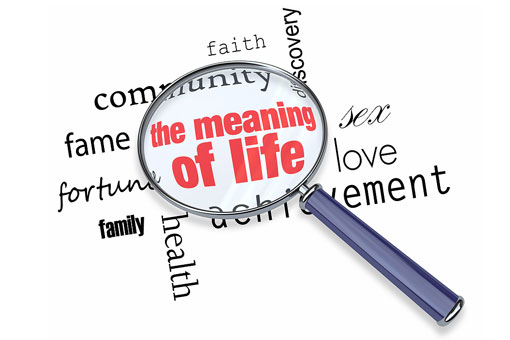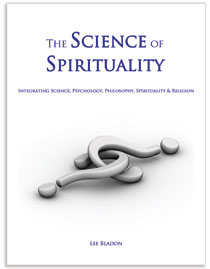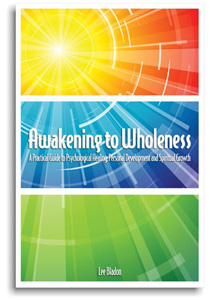The Meaning of Life
From The Science of Spirituality16b – The Meaning of Life
The solar system is massive – If the earth was the size of a peppercorn, the solar system would have a diameter of several miles. The galaxy is enormous – If the solar system was the size of a pin head, our Milky Way galaxy would measure over 10,000 miles across. The universe is practically infinite – There are trillions of galaxies in the universe, each of which contains hundreds of billions of stars. Basically we inhabit a minuscule rock in a practically endless universe, we share this tiny speck with seven billion other humans, we are completely dwarfed by the infinity of time and space – so how can anything we do have any significance whatsoever?
Albert Einstein said: “A human being is a part of a whole, called by us universe, a part limited in time and space. He experiences himself, his thoughts and feelings as something separated from the rest… a kind of optical delusion of his consciousness. This delusion is a kind of prison for us, restricting us to our personal desires and to affection for a few persons nearest to us. Our task must be to free ourselves from this prison by widening our circle of compassion to embrace all living creatures and the whole of nature in its beauty.”
The goal of life is to attain omnipotence and omniscience on the highest cosmic plane (49), and the meaning of life is actively working towards that goal. All life is potential perfection, and life’s experiences enable that potentiality to become an actuality. The universe only exists so that we can realise our potential. We all have the same origin and are all working towards the same goal. We all gradually evolve from ignorance to omniscience, from bondage to freedom, from impotence to omnipotence, and from individuality to unity.
People generally have zero interest in the meaning of life (developing their consciousness) until they are approaching the developed stage (high 300s), but there is a big difference between being interested in it and actively engaging in it. People generally don’t actively start developing their consciousness until they are approaching the humanistic stage (high 400s).
The meaning of life is the evolution of consciousness, but it is not just a phrase or a concept – it is a way of life. It means making the most of every opportunity that life provides us with to facilitate the development our consciousness, and this involves the self-activation of ever-higher kinds of consciousness. Becoming our soul (3:7) is the goal in the human kingdom, becoming our spirit (5:7) is the goal in the fifth kingdom, and becoming our monad (7:7) is the goal in the sixth kingdom.
Higher levels of consciousness cannot be attained while we remain attached to the lower levels. Clinging to physical reality as if it is the only true reality does nothing to further our development. The more we evolve, the less we want the things that everyone else wants: fame, money, power, possessions, respect, acceptance, alcohol, tobacco, drugs, etc. People at the lower stages can’t imagine why anyone would want to give up these things, and they wouldn’t willingly do so. But we don’t need to sacrifice these things or give them up reluctantly; we simply grow out of them when the time is right, just as a child grows out of playing with toys. The more we develop, the less we want to go through life in a physically numbed state or an emotionally induced fantasy, and the more we want to be fully lucid and in control of our own destiny.
We are born into this world with nothing, and we can take nothing with us when we die, so what is the use in acquiring a whole load of material possessions in the middle? The only possession we can and do take with us at the end of an incarnation is our consciousness. So it follows that the only thing worth acquiring in life is a higher level of consciousness – nothing else matters. Getting an education, holding down a good job, being rich and famous, getting married and having children are not our primary goals; they are just secondary factors that facilitate life on Earth. None of these factors directly contribute to our primary goal – the development of consciousness.
The average person believes they are their body and their personality. They therefore live to satisfy their bodily, emotional and egoic desires, and consequently make little progress with the evolution of their soul. They say, “you only live once” and feel they must accomplish and acquire all they can before they die – to them there is no meaning of life. That kind of thinking dominates the vast majority of our human incarnations, which is why our collective progress is so slow. But eventually we grow tired of life on the merry-go-round and start looking for something more. And once we focus on that goal, we can begin to make some real progress.
Every individual is a unique character with unique life experiences, and our mission in life, whether we know it or not, is simply to acquire meaningful life experiences. Acquiring more meaningful life experiences and taking them back to our soul (greater causal body) enables our soul to create a more-developed personality for our next incarnation. A more-developed personality is better able to acquire meaningful life experiences, so the benefits are compounded. Life is simply a sequence of scenarios and situations that our consciousness uses for its development:
- Qualitative development: the refining of consciousness towards emotional, intellectual, moral and spiritual purity.
- Quantitative development: increasing the quantity and power of refined conscious energy. It is essential to increase the quality before increasing the quantity, otherwise the power could corrupt the personality.
To give our life meaning, we must make the most of the opportunities we encounter. We need to remember that everything in life is an opportunity for our consciousness to develop. We mustn’t squander those opportunities, or waste our lives on meaningless activities, or get overly caught up in the emotionality of life. Life is a long series of present moments that can only be experienced in the “now”. So don’t waste your present moments agonising over past moments or worrying about what might happen in future moments.
Life is cyclic in nature and involves a lot of repetition, but human beings are generally slow learners. We may incarnate into human form 50,000 times, yet no two lives will ever be the same, each will (hopefully) be a slight improvement on the last, drawing on the lessons previously learned. The same applies to all existence – each manifestation is slightly more ordered and less chaotic than the preceding one. The ultimate goal of existence is the omniscience, omnipotence and liberation of all monads. As always, there are those who surge ahead, those who go with the flow, and those who lag behind. None of these paths is any better or worse than the others, because all paths lead to the same goal, and all will eventually achieve that goal. But until we achieve that goal, we are incapable of independent existence and must rely on the gift of life from the Absolute that brought us and our universe into existence.
The human race currently faces a critical decision… We must choose between continuing to develop along external materialistic lines or changing track and developing internally into well-balanced human beings. If we make the wrong decision, a global catastrophe could destroy our modern way of life, and materialism will instantly be forgotten as we are once again forced to fight for our very survival. But if we make the right decision, our modern way of life can be preserved, with some significant changes. We just need to make those changes before it is too late, by becoming a kinder, more considerate and more united humanity.



